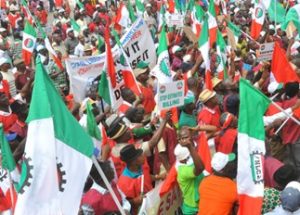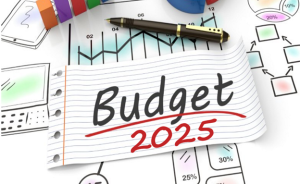TUC THREATENS NATIONWIDE STRIKE OVER PLANNED 5% TAX ON PETROLEUM PRODUCTS
The Trade Union Congress of Nigeria on Monday urged the Federal Government to cancel the planned five per cent tax on petroleum products. The Labour Centre, in a press statement issued in Lagos said it outrightly rejects the Federal Government’s planned 5% tax on petroleum products, describing the proposal as an act of economic wickedness against already overburdened Nigerians. The Federal Government introduced a five per cent surcharge on petrol and diesel sales, a measure that has sparked debate among citizens, businesses, and policy analysts. The levy is part of the newly signed Nigeria Tax Administration Act, one of four tax reform bills signed into law by President Bola Tinubu on June 26, 2025. The regulation requires that the surcharge be applied to every supply or sale of refined fossil fuel products in Nigeria, whether locally produced or imported, with the money collected at the point of sale. Cleaner fuels such as renewables, household kerosene, cooking gas and compressed natural gas are exempt. The Petroleum Products Retail Outlets Owners Association of Nigeria, said the law, if enforced could cause its members to close businesses. Stakeholders in the extractive sector such as Extractive360 who opposed the plan to impose a 5% tax on petroleum products beginning from January 1, 2026, said that the move will further increase the pump price of petrol which most Nigerians depend on for transport and energy. They noted that with the average national pump price of petrol at N950 per litre, about 382 per cent from N197 per litre when President Tinubu assumed office on May 29, 2023, Nigerians will be impoverished further. Speaking in the statement, TUC’s national president, Festus Osifo, and its Secretary General, Nuhu Toro noted that Nigerian workers currently undergoing pains from the removal of fuel subsidy will not be subjected to further “pains” to be inflicted by the new tax rule. “Let it be clear: workers and citizens are still reeling from the pains of subsidy removal, skyrocketing fuel prices, food inflation, and a collapsing naira. “To now introduce another levy on petroleum products is to deliberately compound suffering, cripple businesses, and push millions of citizens deeper into poverty. “Government cannot continue to use Nigerians as sacrificial lambs for its economic experiments. Instead of offering relief, jobs, and solutions, it has chosen to further squeeze citizens dry. This is unacceptable! “The TUC hereby urge the Federal Government to immediately stop this anti-people’s plan in its entirety. Failure to do so will leave us with no option but to mobilise Nigerian workers and the masses for a total nationwide resistance. Strike action is firmly on the table if the government dares to ignore this warning and go ahead to implement this policy. “Accordingly, the TUC directs all its state councils, affiliates, and structures nationwide to remain vigilant, watchful and wait for further communication that may culminate in a decisive action should government dare to further ignore the collective will of the people. “We also call on our allies, civil society organisations, professional bodies, student unions, market associations, faith leaders, and all patriotic Nigerians to stand in solidarity with us in this struggle. “Together, we must resist policies that seek to further impoverish citizens and mortgage our future. “Enough is enough. Nigerians deserve economic justice, not endless punishment.

NAIRA RALLIES TO 1,500/$ AS RESERVES STRENGTHEN
The naira sustained its rally on Wednesday, closing at N1,500.91 to the United States dollar at the official Nigerian Foreign Exchange Market. The performance marked a significant milestone as the local currency traded below the N1,500/$ threshold for the second consecutive day. According to data from the Central Bank of Nigeria, the naira fluctuated between N1,498/$ and N1,507/$ during the trading session. This marked a continuation of the positive trajectory seen since the beginning of September, when the naira opened at N1,526.09/$ at the NFEM. By Monday, it had firmed to N1,506/$, maintaining that rate on Tuesday before further appreciating midweek. The last time the naira traded at N1,500/$ was March 5, 2025, underscoring the significance of the latest development in stabilizing the currency. The parallel market mirrored the trend, as the naira appreciated to between N1,515/$ and N1,517/$ on Wednesday, strengthening from N1,525/$ the previous day. Analysts attributed the rally to a combination of stronger naira demand, reduced speculative trading, and improved foreign reserves. They expressed optimism that the positive sentiment in the currency market would be sustained in the near term, supported by increasing external buffers. Nigeria’s external reserves stood at $41.59bn as of Tuesday, a $25m increase from the previous day. The reserves have consistently grown in recent weeks, reflecting a healthier external position for the country. In its Macros and Market Insight report released on Wednesday, Meristem Research underscored the role of the rising reserves in supporting the naira’s rebound. The firm noted that the domestic economy recorded relative stability in August, buoyed by moderating inflation, increased crude oil production, and a sharp rise in capital inflows. “These factors boosted the country’s foreign exchange reserves by the end of the month, helping to sustain stability in the naira,” the report said. “We see the strengthened reserve position as a key economic milestone, as it reflects robust external buffers and enhances the Central Bank of Nigeria’s ability to sustain exchange rate stability.” Meristem further stated that the improved reserve levels would likely send a positive signal to investors, particularly foreign portfolio investors, by bolstering confidence in Nigeria’s macroeconomic outlook. “We expect the positive momentum to persist, underpinned by sustained growth in oil receipts and a steady rise in non-oil exports,” the report continued. “This provides a critical buffer for effective exchange rate management and broader macroeconomic stability. Nonetheless, downside risks stemming from weaker global oil prices, security vulnerabilities in the oil sector, and possible production disruptions persist.” At over $41bn, Nigeria’s foreign reserves translate to about 10 months of import cover—well above the international benchmark of three months. This development is seen as a reassuring signal for investors and businesses that rely on foreign exchange access for imports and other cross-border transactions. The sustained appreciation of the naira comes at a time when confidence in Nigeria’s economic reforms remains pivotal. The Central Bank has been at the center of efforts to restore stability in the currency market through a mix of policy reforms, including measures to unify exchange rates, curb speculative demand, and attract foreign capital inflows. For businesses, a more stable naira offers relief in managing import costs and planning investments. For households, the outlook raises cautious optimism that continued currency stability could eventually ease inflationary pressures tied to import-dependent consumption. With external reserves rising, speculative activity subsiding, and oil earnings supporting inflows, market watchers believe the naira’s current rally has a stronger foundation compared to past fluctuations. However, experts caution that sustaining the momentum will depend on the government’s ability to maintain macroeconomic discipline, boost crude oil output, and diversify export earnings.
NGX OPENS WEEK WITH N263BN GAIN
The Nigerian Exchange resumed the new trading week on a positive note, gaining N263bn in market capitalisation as investors took positions in consumer goods and insurance stocks, particularly PZ Cussons Nigeria and University Press Plc. At the close of transactions on Monday, the market capitalisation of listed equities rose to N88.2tn from N87.9tn recorded in the previous session, representing a growth of N263bn. Similarly, the benchmark All-Share Index advanced by 414.74 points, or 0.3 per cent, to close at 139,394.75 points. The day’s trading showed a turnover of 947.83 million shares worth N17.96bn exchanged in 36,006 deals. This represented a 48 per cent decline in volume when compared with the previous trading day, but a 12 per cent improvement in turnover and a 46 per cent increase in the number of deals. Market breadth closed on a positive note with 41 gainers against 18 losers. PZ Cussons Nigeria led the gainers’ chart, appreciating 10 per cent to close at N35.20 per share. It was followed by University Press Plc, which also gained 10 per cent to close at N5.50 per share. Ellah Lakes Plc rose 9.94 per cent to N14.27, while Legend Internet appreciated 9.90 per cent to N5.44 per share. On the flip side, Nigerian Enamelware Plc led the losers’ table, shedding 10 per cent to close at N35.10 per share. Industrial and Medical Gases Nigeria Plc also lost 10 per cent to close at N33.30 per share, followed by Union Dicon Salt Plc and Thomas Wyatt Nigeria Plc, which both shed 10 per cent to close at N10.80 and N2.70 per share, respectively. FCMB Group Plc emerged as the most traded stock by volume, accounting for 460.95 million shares valued at N4.73bn. Universal Insurance followed with 42.22 million shares worth N53.39m, while Royal Exchange traded 35.22 million shares valued at N72.49m. Zenith Bank recorded 26.73 million units valued at N1.73bn. In terms of value, FCMB also led the chart with trades worth N4.73bn, followed by Zenith Bank with N1.73bn, GTCO with N1.60bn, Dangote Sugar with N1.41bn, and Nestle Nigeria with N930.13m. A breakdown of the sectoral performance showed that the NGX Insurance Index led with a gain of 3.16 per cent to close higher, followed by the NGX Consumer Goods Index, which advanced 0.6 per cent. The NGX Main Board Index rose 0.54 per cent, the NGX Top 30 Index inched up 0.11 per cent, and the NGX Industrial Index added 0.02 per cent. However, the NGX Oil and Gas Index closed flat. Overall, the NGX posted a one-week loss of 0.64 per cent and a four-week loss of 4.36 per cent, but it has so far maintained a year-to-date gain of 35.43 per cent, reflecting sustained investor appetite in selected blue-chip stocks. The Nigerian Exchange resumed the new trading week on a positive note, gaining N263bn in market capitalisation as investors took positions in consumer goods and insurance stocks, particularly PZ Cussons Nigeria and University Press Plc. At the close of transactions on Monday, the market capitalisation of listed equities rose to N88.2tn from N87.9tn recorded in the previous session, representing a growth of N263bn. Similarly, the benchmark All-Share Index advanced by 414.74 points, or 0.3 per cent, to close at 139,394.75 points. The day’s trading showed a turnover of 947.83 million shares worth N17.96bn exchanged in 36,006 deals. This represented a 48 per cent decline in volume when compared with the previous trading day, but a 12 per cent improvement in turnover and a 46 per cent increase in the number of deals. Market breadth closed on a positive note with 41 gainers against 18 losers. PZ Cussons Nigeria led the gainers’ chart, appreciating 10 per cent to close at N35.20 per share. It was followed by University Press Plc, which also gained 10 per cent to close at N5.50 per share. Ellah Lakes Plc rose 9.94 per cent to N14.27, while Legend Internet appreciated 9.90 per cent to N5.44 per share. On the flip side, Nigerian Enamelware Plc led the losers’ table, shedding 10 per cent to close at N35.10 per share. Industrial and Medical Gases Nigeria Plc also lost 10 per cent to close at N33.30 per share, followed by Union Dicon Salt Plc and Thomas Wyatt Nigeria Plc, which both shed 10 per cent to close at N10.80 and N2.70 per share, respectively. FCMB Group Plc emerged as the most traded stock by volume, accounting for 460.95 million shares valued at N4.73bn. Universal Insurance followed with 42.22 million shares worth N53.39m, while Royal Exchange traded 35.22 million shares valued at N72.49m. Zenith Bank recorded 26.73 million units valued at N1.73bn. In terms of value, FCMB also led the chart with trades worth N4.73bn, followed by Zenith Bank with N1.73bn, GTCO with N1.60bn, Dangote Sugar with N1.41bn, and Nestle Nigeria with N930.13m. A breakdown of the sectoral performance showed that the NGX Insurance Index led with a gain of 3.16 per cent to close higher, followed by the NGX Consumer Goods Index, which advanced 0.6 per cent. The NGX Main Board Index rose 0.54 per cent, the NGX Top 30 Index inched up 0.11 per cent, and the NGX Industrial Index added 0.02 per cent. However, the NGX Oil and Gas Index closed flat. Overall, the NGX posted a one-week loss of 0.64 per cent and a four-week loss of 4.36 per cent, but it has so far maintained a year-to-date gain of 35.43 per cent, reflecting sustained investor appetite in selected blue-chip stocks.

NGX EXTENDS GAINS WITH N254BN UPTICK
The Nigerian Exchange on Tuesday sustained its positive momentum as investors’ appetite for insurance and banking stocks lifted the market with a gain of N254bn, extending the bullish run recorded in the previous session. At the close of trading, the market capitalisation of listed equities rose to N88.5tn from N88.25tn recorded the previous day, reflecting the N254bn increase. The All-Share Index advanced by 401.36 points, or 0.29 per cent, to settle at 139,796.11 points. Analysis of trading data showed that a total of 659,163,979 shares valued at N12.50bn were exchanged in 25,320 deals. This represented a 30 per cent decline in volume, turnover, and number of deals compared with Monday’s session. Market breadth closed positive as 36 equities appreciated in value against 19 that declined, while 72 closed flats. On the gainers’ chart, Regency Alliance Insurance led with a 10 per cent appreciation to close at N1.43 per share. It was followed by MeCure Industries, which rose 9.92 per cent to N21.60; E-Tranzact International, which advanced 9.73 per cent to N12.40; Daar Communications, with a gain of 9.57 per cent to N1.03; and Deap Capital, which climbed 9.52 per cent to N1.84 per share. Conversely, Unilever Nigeria topped the losers’ table with a 9.79 per cent decline to close at N63.15 per share. FTN Cocoa Processors trailed with a loss of 9.40 per cent to N5.40, followed by Ellah Lakes, which dipped 8.76 per cent to N13.02; Linkage Assurance, which shed 6.85 per cent to N2.04; and Berger Paints, which fell 6.33 per cent to N35.50 per share. Trading activity was dominated by financial services stocks, with FCMB Group emerging as the most traded by volume, accounting for 202.49 million shares valued at N2.09bn. Universal Insurance followed with 63.14 million shares worth N79.39m, while First HoldCo transacted 44.23 million shares worth N1.34bn. Regency Alliance Insurance and AccessCorp also recorded significant activity, with 30.98 million shares and 26.12 million shares traded, respectively. In terms of value, GTCO led the chart with N1.50bn, followed by First HoldCo with N1.34bn, MTNN with N800.11m, and AccessCorp with N676.41m. Performance across the market indices was largely positive. The NGX Top 30 Index advanced 0.32 per cent, the NGX Insurance Index rose 0.98 per cent, the NGX Industrial Index improved 0.85 per cent, and the NGX Banking Index gained 0.43 per cent. Similarly, the NGX Premium Index recorded a 0.47 per cent increase, while the NGX Consumer Goods Index appreciated 0.28 per cent. On a weekly basis, the market has recorded a marginal gain of 0.05 per cent but still reflects a four-week decline of 4.17 per cent. Year-to-date, however, the NGX All-Share Index has returned a strong gain of 35.82 per cent, underscoring sustained investor interest in the equities market. Market analysts noted that the uptrend was largely supported by sustained demand in low- and medium-capitalised stocks, particularly within the insurance and banking subsectors, even as broader market sentiment remained cautious. The PUNCH reported that the Nigerian Exchange resumed the new trading week on a positive note, gaining N263bn in market capitalisation as investors took positions in consumer goods and insurance stocks, particularly PZ Cussons Nigeria and University Press Plc.
2025 BUDGET IMPLEMENTATION BEGINS IN SEPTEMBER – FG
The Federal Government has announced that the implementation of the 2025 national budget will begin by the end of September, as execution of the 2024 fiscal plan winds down. This was disclosed by the Director-General of the Budget Office of the Federation, Tanimu Yakubu, during the 3rd Quarter Ministerial Stakeholders and Citizens Engagement Forum, hosted by the Ministry of Budget and National Planning in Abuja on Thursday. Yakubu explained that the ₦54.99tn 2025 budget, tagged the Budget of Restoration, was designed to stimulate economic growth, improve public services, and attract investments across key sectors. “The implementation of the 2025 budget will begin by the end of September. The budget aims to address critical sectors, boost economic growth, and improve public services. Effective execution and fiscal discipline will be vital to its success,” Yakubu said. The DG underscored the importance of citizen participation, stressing that Nigerians remain the ultimate owners of public resources. He revealed that initiatives were underway to translate budget documents into local languages, simplify technical content, and empower communities to hold government accountable. Yakubu also identified challenges facing Nigeria’s public finance system, including setting realistic oil revenue targets, tackling the fiscal implications of the Petroleum Industry Act, improving transparency in tax credit schemes and project financing, and prioritising debt servicing—already pegged at N14.3tn in the 2025 budget. He further outlined measures to support the government’s ambition of transforming Nigeria into a $1tn economy by 2030. These include ward-based development programmes across 8,809 wards, tax reforms, strict fiscal discipline, and innovation partnerships such as the $30.9m Nigeria-Japan start-up initiative. The Minister of Budget and National Planning, Atiku Bagudu, reaffirmed the government’s commitment to transparency and evidence-based decision-making. “Our policies and programmes must be based on facts, not speculation. Data is the foundation of responsible governance,” Bagudu said. He added that the recurrent portion of the 2025 budget was already in motion, as salaries were being paid and debts serviced. The Statistician-General of the Federation, Adeyemi Adeniran, stressed the need for greater investment in statistical systems and wider public understanding of data’s role in governance. He pointed out that underfunding, outdated tools, and small survey sample sizes still undermine the precision of Nigeria’s national statistics. Nevertheless, he assured that the National Bureau of Statistics adheres to global best practices, guided technically by the United Nations and the World Bank. Adeniran also highlighted ongoing initiatives, such as statistical literacy programmes, enhanced data visualisation tools, a revamped NBS website, and closer engagement with civil society groups. Speaking after a closed-door meeting with the House of Representatives Committee on Appropriation, chaired by Hon. Abubakar Bichi (APC, Kano), the Minister of Finance and Coordinating Minister of the Economy, Wale Edun, said that the performance level of the extended 2024 budget had reached about 80 per cent. However, challenges remain. In August, The PUNCH reported that the 2025 budget might be extended into 2026 due to slow capital project execution, procurement delays, and technical hitches with the cash-planning portal. This possibility was raised at an earlier stakeholders’ engagement in Abuja, convened by the Office of the Accountant-General of the Federation to review the progress and obstacles in implementing both the extended 2024 capital budget and the ongoing 2025 capital budget under the Bottom-Up Cash Planning Policy. Thursday’s forum, which brought together senior government officials, development partners, civil society leaders, and citizens, reaffirmed the central role of credible data and fiscal discipline in shaping Nigeria’s development trajectory.

- CAPITALDIGEST MARKET REVIEW, 09/02/2026February 9, 2026
- CAPITALDIGEST DAILYNEWS, 09/02/2026February 9, 2026
- CAPITALDIGEST MARKET REVIEW, 02/02/2026February 2, 2026
Enter your email address for receiving valuable newsletters.
- CAPITALDIGEST MARKET REVIEW, 09/02/2026U.S. DOLLAR REBOUND TO BE CUT SHORT BY RATE CUT BETS, DOUBTS OVER FED INDEPENDENCE:...February 9, 2026
- CAPITALDIGEST DAILYNEWS, 09/02/2026TAXES, FUEL HIKE SLOW BUSINESS GROWTH IN JANUARY – NESG REPORT The report showed that...February 9, 2026
- CAPITALDIGEST MARKET REVIEW, 02/02/2026DOLLAR WEAKENS ACROSS THE BOARD AS YEN CLIMBS ON INTERVENTION RISK The dollar moved sharply...February 2, 2026












